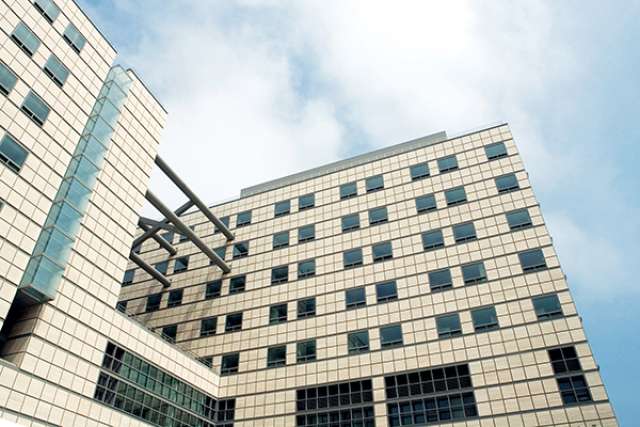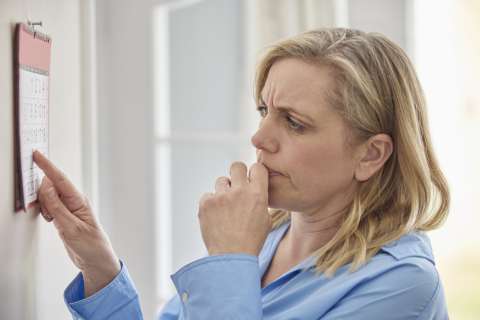UCLA Health is committed to the safety of patients and employees while maintaining high-quality care at our hospitals in Westwood and Santa Monica and community clinics across the region.
As an academic health system that regularly treats patients with complex illnesses and manages a major research enterprise, UCLA Health and the David Geffen School of Medicine at UCLA are uniquely positioned to address the COVID-19 pandemic. We have the clinical expertise, modern facilities, innovative research and dedicated physicians, nurses and staff to meet this challenge. Leveraging resources and expertise allows us to deliver on our mission of patient care, research, medical education and community service.
UCLA Health has made many adjustments to standard operating procedures at its hospitals and clinics. Those changes, summarized below, include testing for COVID-19, screening patients and visitors for symptoms, shifting dramatically toward telehealth and securing supply chains for personal protective equipment and other supplies, among many other steps.
While maintaining readiness if the number of COVID-positive patients significantly increases, UCLA Health is carefully increasing the number of essential surgeries and procedures – focusing on those postponed earlier in the pandemic and those that have become time-sensitive for the patient's condition.
UCLA Health has in place comprehensive, effective infection prevention practices so that patients can feel safe coming in for care. Patients, staff and visitors are screened for fever and symptoms and are provided a facemask before entering our facilities. In addition, all patients are tested for COVID-19 before being admitted to the hospital and most are tested before undergoing an outpatient procedure. Tests are analyzed based on the highest standards by our in-house labs, so we are confident in the results. We have adequate supplies of facemasks and other personal protective equipment to safely provide care.
Here is a summary of some of the steps taken by UCLA Health and the David Geffen School of Medicine at UCLA:
Better Together
UCLA Health has joined five other nonprofit health systems in the region to encourage community members to put health first and access care when needed.
Public service announcement | News release
Testing
- All patients are tested for COVID-19 before being admitted to the hospital and most are tested before coming in for an outpatient procedure.
- UCLA Health was among the first academic health systems in the country to develop its own test to diagnose COVID-19.
- As of May 13, more than 16,400 tests had been completed since March.
- Multiple locations, by appointment only, for patients with a testing order from a UCLA Health physician.
- Ramping up testing for antibodies.
Data about COVID-19 testing volume and results and patients in our hospitals is updated daily and available here.
Screening and Masking
Testing and screening for symptoms reduces opportunities for exposure and decreases the likelihood of transmission.
- All patients, staff and visitors are screened for fever and symptoms before being allowed inside clinical care facilities.
- Those successfully completing the screening process are provided a mask for use that day. This is being implemented as a pilot made possible and contingent in part on PPE procurement and management efforts described below.
Personal Protective Equipment (PPE)
UCLA Health follows Los Angeles County Department of Public Health and U.S. Centers for Disease Control and Prevention guidelines for use of PPE. While we have adequate supplies to safely provide care, it is important to remain vigilant stewards of masks and other PPE.
- We are continually monitoring inventory and usage rates while working diligently to procure supplies from government and private industry sources.
- The hospital system and the medical school are innovating and collaborating with professional schools across UCLA. For example, bioengineers at the engineering and dental schools developed face shield components, UCLA Health tested prototypes to validate safety, and medical students and alumni have helped assemble thousands of shields.
- UCLA Health is Utilizing Ultraviolet Germicidal Irradiation to disinfect N95 masks for safe, limited reuse, following FDA and CDC guidelines and careful validation.
UCLA Health is grateful for the generosity of many companies, individuals and organizations who have donated PPE. For information about making a financial or in-kind donation, go here.
UCLA Heath is heartened by so many in the community showing their support for health care workers via UCLA Health's #TeamLA campaign.
Telehealth
Converting in-person physician visits to telehealth visits allows UCLA Health to serve patients and the community while minimizing opportunities for exposure and decreasing the likelihood of transmission.
- Between March 22 and April 26, UCLA Health performed 93,710 telehealth visits, which was almost 56 percent of all visits. Between January 27 and February 29, prior to the World Health Organization declaring a pandemic, UCLA Health performed 1,168 telehealth visits, or 0.4 percent of all visits.
- We have been reaching out to patients – especially those with chronic conditions – to ensure all have an opportunity to receive a medical consultation.
- TeIehealth information for patients is here.
Clinical Trials and Research
UCLA Health and the David Geffen School of Medicine at UCLA are on the forefront of COVID- 19. Teams have rapidly and strategically mobilized and research is being prioritized.
We have at 15 least active clinical trials on such subjects as treatments for non-hospitalized patients, pre-exposure and vaccine trials, and studies for healthcare workers and first responders, among others.
- Clinical trial tests anti-viral drug, other therapies
- Web app enlists public's help in slowing the spread
- Clinical trial tests convalescent plasma as a potential COVID-19 treatment
- National registry helps doctors understand risks posed to pregnant women, newborns
- Tom Hanks, Rita Wilson give big boost to UCLA COVID-19 research
- Why we need more demographic data on COVID-19
- UCLA leads CDC-funded project to reduce infection among ED workers
- Can antimalarial drug hydroxychloroquine prevent infection with COVID-19?
- Biodesign fellow focuses surgical, medical, biomedical engineering on weak link in testing process: swabs shortage
- UCLA scientists receive stem cell agency grants for COVID-19 research
- UCLA webinar series on COVID-19 research begins April 22
- Coronavirus testing: from swab to result
- Biodesign fellow builds low-cost ventilator prototype
- Study reveals how long virus remains infectious on cardboard, metal and plastic
Visitation
To help maintain a safe environment, UCLA Health has temporarily restricted visitor access to facilities. For details, go here.
- We understand this can be difficult and thank patients and their loved ones for their understanding and cooperation.
- We recommend patients use FaceTime, Skype or in-room phones connect with and update loved ones who cannot visit.
Maintaining Preparedness
We are prepared for the possibility that the number of Covid-positive patients may increase.
- A multidisciplinary team of clinicians and hospital leadership has revised protocols and developed detailed plans to coordinate care and operations.
- We have erected tents outside emergency departments to evaluate patients with potential symptoms. Separating those with symptoms from the general patient population protects patients and clinical teams and minimizes opportunities for exposure and transmission.
- Inside hospitals, Covid-positive patients are grouped in specifically designated areas and care is overseen by special teams.
- Should they be needed, we have identified additional beds outside the hospital setting for patients who are less sick in order to reserve hospital beds for the sickest patients.
- When safe to do so, certain surgeries and procedures were postponed. Limiting procedures that are not medically necessary frees up beds, enhances capacity and conserves personal protective equipment.



